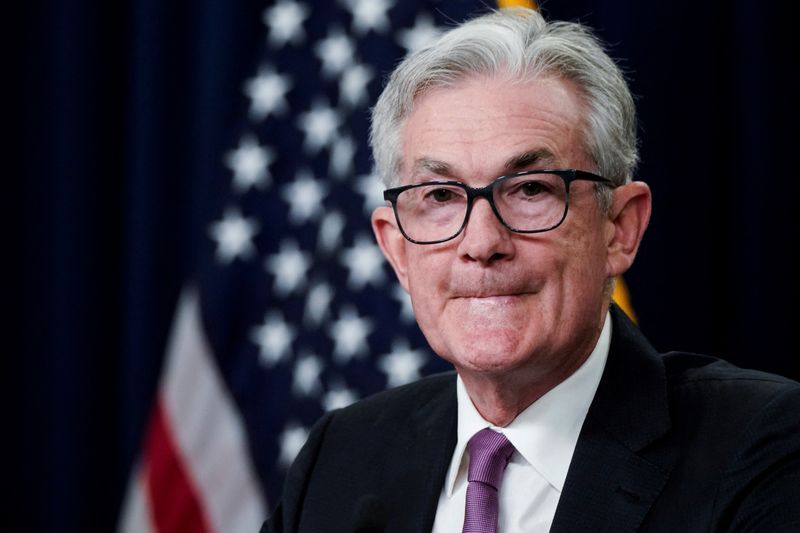Investing.com – Oil prices rose for a third day in a row as Federal Reserve Chair Jerome Powell’s disinclination to suggest another rate hike despite worrying US inflation tamped down the dollar, handing commodity bulls, including those betting on higher crude prices, a win.
Thursday’s 1% rise brought the week-to-date gain in oil to just over half a percent, after accounting for Monday’s drop of more than 2%. Adding support to the recovery has been the worsening Israel-Hamas war, which raised concerns over the potential for disruption in crude production or transportation out of the Middle East, despite no immediate signs of either happening.
Earlier in the session, crude prices fell more than 1% as the United States gave a six-month waiver on the sanctions imposed on Venezuelan oil, in return to the South American country’s promise to hold free and fair elections. A sanctions waiver would theoretically allow more Venezuelan barrels on the market though actual new production of oil would take longer.
Powell throws oil bulls another lifeline by playing down rate hike prospects
New York-traded West Texas Intermediate, or , crude for delivery in November settled up $1.05, or 1.5 %, at $89.37 per barrel. Week-to-date, the US crude benchmark rose 0.6%.
London-traded crude for the most-active December contract finished Wednesday’s session at $92.38, up 88 cents, or nearly 1%. For the week, the global crude benchmark showed a gain of 2.3%.
Crude prices rose as the dollar fell, making commodities denominated in the US currency more affordable to international buyers, after Powell failed to signal a hike for the Fed at its Nov. 2 rate decision.
“Inflation is still too high,” Powell said during his speech and responses to questions raised at an event at the Economic Club of New York. He added: “Right now the risk is still high inflation. It’s possible we are going into a more inflationary period, but it’s hard to know. It may be that rates haven’t been high enough long enough.”
But the Fed chair could not hide his wonder on how well the US economy itself was doing despite the central bank’s aggressive rate hikes — and the relative problem of inflation caused by that.
To fight inflation, the Fed hiked interest rates 11 times between March 2022 and August 2023, raising them by 5.25% from a base rate of just 0.25%.
Despite that, the Atlanta Fed, a division of the central bank, estimates that the economy grew by an annual rate of 5.4% in the third quarter of this year versus a mere expansion of 2.1% in the second quarter.
Inflation, meanwhile, was higher than expected for a third month in a row as consumer prices grew by an annual rate of 3.7% in September, the same as in August, and higher than the 3.6% forecast by Wall Street economists.
“Economy is a story of stronger demand. The economy is very resilient, growing strongly. Growth is running above its longer run trend. That is a surprise,” he said, adding, however, that “it is very hard to know how the economy can grow with higher rates”.
As the Fed chair spoke, the selloff in US bonds accelerated on expectations that US interest rates will remain higher for longer, with the yield on the benchmark rising to the key psychological mark of 5% — a level last reached in June 2007.
But Powell’s disinclination to outrightly signal another rate hike also kept federal funds futures — which is an indicator of Fed rate decisions — unchanged at the prevailing 5.25%-5.50% range. That pushed down the — an instrument that pits the US currency against six of its major rivals — on the notion that the dollar will be disadvantaged in an environment where the Fed might just hold on to rates without raising them further.
Earlier in the day, crude prices fell after the United States issued a six-month license authorizing transactions in Venezuela’s energy sector after a deal was reached between the Maduro administration there and its political opposition to ensure fair 2024 elections.
The deal is not expected to quickly expand Venezuela’s oil output but could boost profits by returning some foreign companies to its oilfields and providing its crude to a wider set of cash-paying customers, experts said.
(Peter Nurse and Ambar Warrick contributed to this article)
Read the full article here












